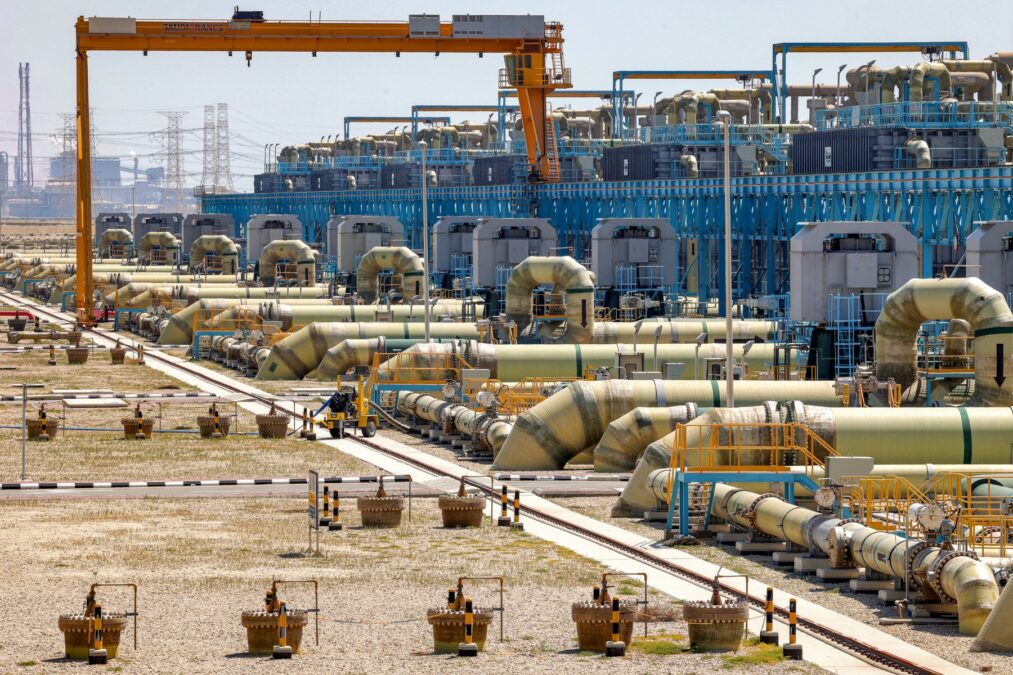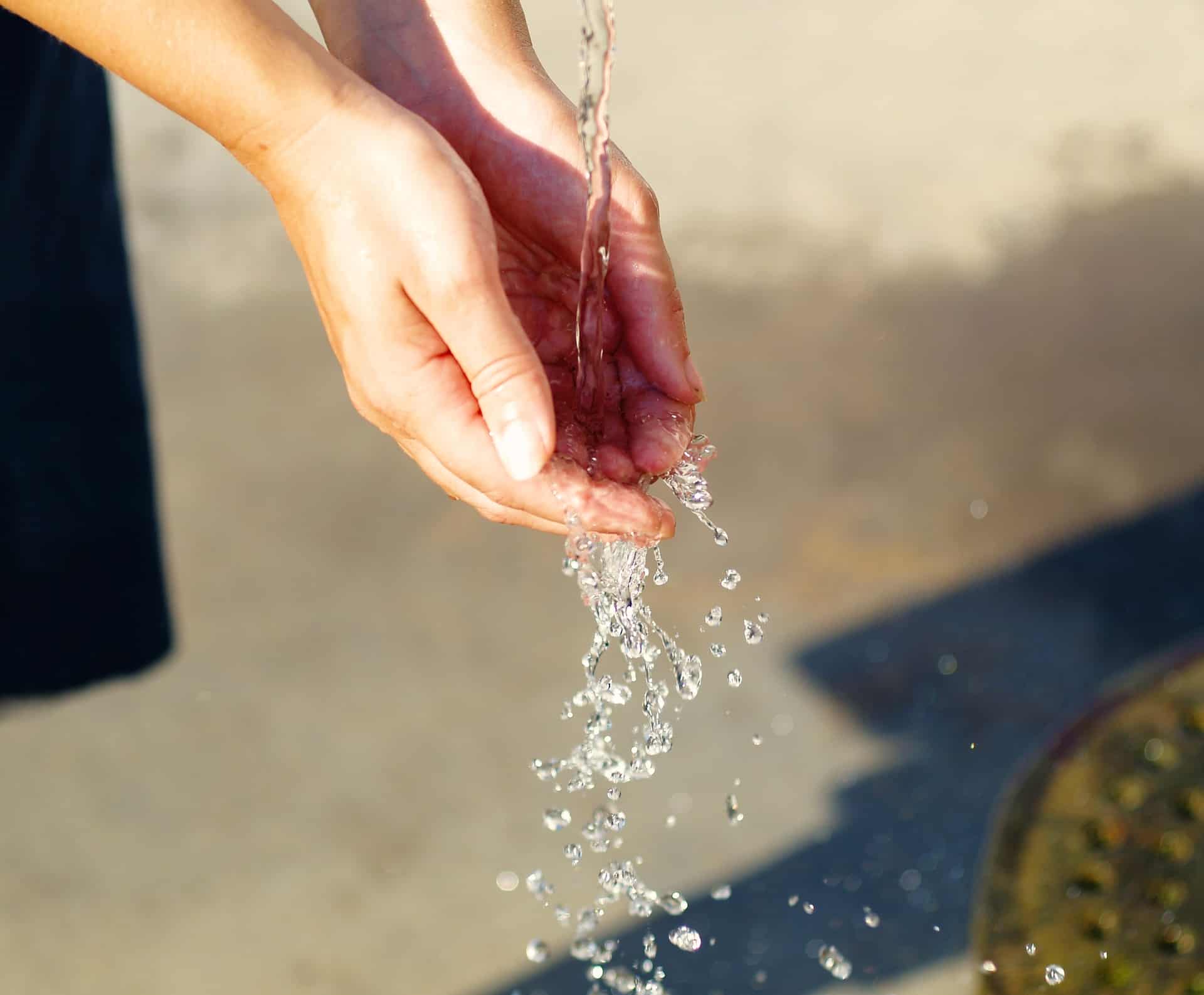Riyadh, Saudi Arabia — Saudi Arabia, which is among the world’s most water-scarce countries, is making serious, environmentally friendly attempts to overcome the problem.
Water scarcity is 500 cubic meters per capita, while Saudi Arabia’s annual per capita share of water does not exceed 89.5 cubic meters.
The “Innovation in the Desalination Industry Conference” in its second session, which was recently held in Jeddah Governorate, confirmed that Saudi Arabia is working hard to achieve maximum water self-sufficiency, with mutual agreements signed between the Saline Water Conversion Corporation (SWCC) and several major corporations.
The agreements were signed by the General Authority for SME (Monsha’at), the University of Tabuk and the companies UI Path, Fedco and Dow.
SWCC and Monsha’at signed a memorandum of understanding to empower entrepreneurs and innovators in water technologies by supporting the Saudi Innovation Center for Water Technologies, which is affiliated with SWCC, to promote innovation in the field of water technologies and contribute to the growth and diversification of the economy.

SWCC and the University of Tabuk agreed to collaborate on developing a robot for cleaning and removing vital deposits from water intake pipelines in manufacturing systems.
In addition, SWCC and UI Path agreed to use cutting-edge artificial intelligence technologies, and SWCC and Fedco agreed to develop pumps and energy recovery devices.
The agreement between SWCC and Dow included research into the efficacy of cleaning materials for reverse osmosis membranes to prevent pollution in Arabian Gulf waters.
What causes water scarcity?
It is not new to say that Saudi Arabia faces a water shortage. This is regarded as one of the most significant challenges confronting the country regarding managing water resources and meeting the population’s and the economy’s needs.
Many factors contribute to Saudi Arabia’s water shortage, including groundwater depletion. As large areas of the Kingdom rely on it, groundwater levels have dropped significantly.
The issue of desertification, related to water shortages in Saudi Arabia, is also highlighted, in addition to pollution, another factor affecting water resources. Pollution from agriculture, industry, and improper waste disposal pollutes groundwater and bodies of water.
Moreover, the rapid population and economic growth in Saudi Arabia are one of the significant causes of water scarcity.
These factors increase pressure on water use, prompting the Kingdom to address it scientifically and thoughtfully by developing plans that support development rather than simply treating the problem.
The most visible of these steps were seawater desalination, allocating resources to improve water management, raising awareness of the importance of water conservation and reducing waste in use.
Support to the Economy
The projects agreed upon at the Innovation Conference were not the first in this regard but rather several previous initiatives and projects through which the Kingdom is attempting to achieve self-sufficiency.
Among the most visible initiatives announced by Saudi Crown Prince Mohammed bin Salman last September was establishing a global organization in Riyadh to address water challenges.
According to the official SPA agency, the organization’s mission is to “develop and integrate the efforts of countries and organizations to address water challenges comprehensively, seeking to ensure the sustainability of water resources and enhance access to them for all.”
According to the Crown Prince, “This initiative comes as an affirmation of the Kingdom’s role in addressing water challenges around the world and its commitment to issues of environmental sustainability, and based on what it has provided over decades of pioneering global experience in producing, transporting and distributing water and innovating technical solutions to its challenges.”
The Kingdom previously launched 59 initiatives in 2017 to achieve water and food security, increase the efficiency of various services, preserve the environment, and innovate solutions to improve the sustainability of these two sectors, ultimately leading to the realization of the Kingdom’s development vision for 2030.
In 2021, Saudi Arabia launched the “Green Middle East Initiative,” which includes establishing a regional complex “to extract, use, and store carbon, as well as establishing a regional center for early warning of storms to contribute to reducing health risks resulting from dust waves.”
On the other hand, these projects, in addition to contributing to the environment and providing water to the population, have an economic component, particularly regarding job creation.
The Kingdom aims to reduce citizen unemployment to 7.5% by 2030, and the government has been implementing economic reforms since 2016 to create millions of jobs in support of Vision 2030.
The Saudization program requires the authorities to limit some professions and jobs to Saudis only regularly. It also attempts to change regulations to encourage entrepreneurship and attract more foreign investment. We hope that this will lead to more job opportunities for Saudis.








